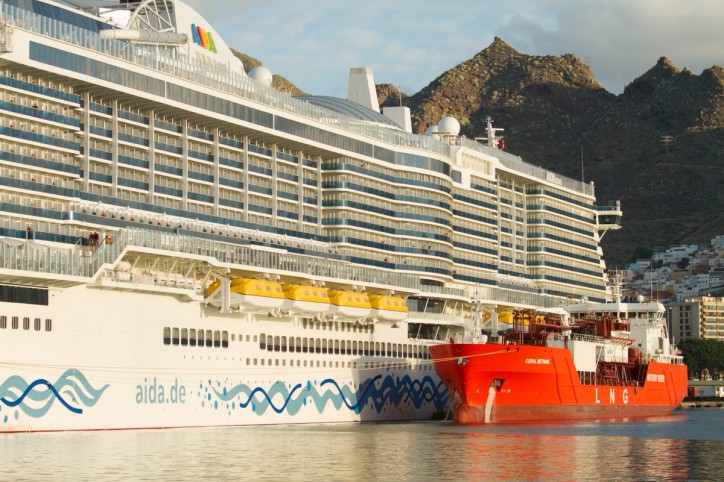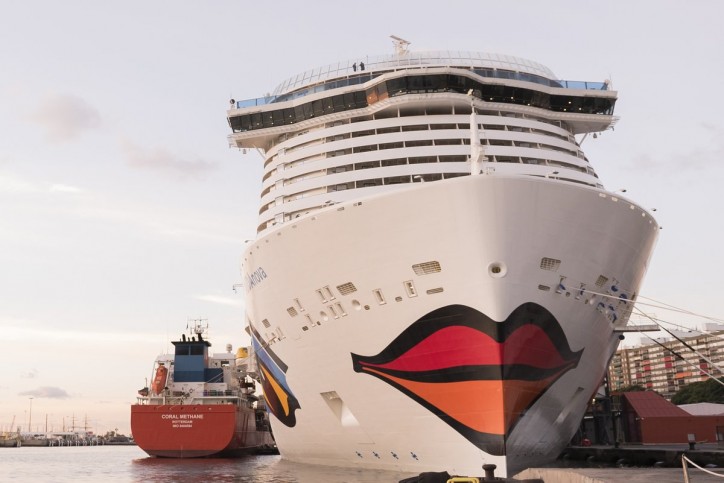On 16 January 2019, Coral Methane successfully carried out her first liquefied natural gas (LNG) bunkering operation on the world’s first LNG-powered cruise ship at Santa Cruz de Tenerife in the Canary Islands. She fueled AIDAnova (see also CruiseMapper), the newest ship from AIDA Cruises, which made history as the cruise industry’s first ship to be powered at sea and in port by the world’s cleanest burning fossil fuel. Coral Methane is a 7,500 cbm vessel that has been modified from an ethylene/LNG carrier to an LNG bunker vessel for Shell, who are supplying the LNG.

“We believe LNG is today’s most sustainable marine fuel. The delivery of Coral Methane as an LNG bunker vessel, in partnership with Shell, underlines our dedication to LNG and marks the next step in our contribution to a sustainable supply chain,” says Klaas Kerssemakers, Chief Operating Officer of Anthony Veder. “The success of this project is due to an excellent cooperation with all parties involved, from the engineering phase up to and including our first LNG bunkering operation.”
Ensuring safe and sustainable bunkering operations
The modification project, managed by Anthony Veder, took twelve months. It required engineering and modification works, as well as obtaining bunkering licenses for the various ports. To guarantee safe bunkering operations, the crew was familiarized with all the necessary equipment and procedures together with employees of Shell and AIDA Cruises, along with Carnival Corporation.

Building attractive fuel solutions for shipping
Coral Methane was built in 2009 according to an innovative design with Azipull thrusters that give the vessel high maneuverability and fuel efficiency. Its proven flexibility provides the necessary conditions to operate as an LNG bunker vessel. Modifications such as the installed hose transfer system enable Coral Methane to perform safe bunkering operations while the boil-off gas management system provides a sustainable solution for efficient use of natural gas and carbon emission reductions. The project also involved a review of all necessary operational procedures to ensure compliance with the SGMF (Society for Gas as Marine Fuel) recommendations and guidelines.
Source: Anthony Veder